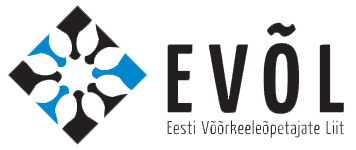BOARD
Chairman: Annekatrin Kaivapalu (Tallinn University)
Members: Juha-Matti Aronen (University of Tartu)
Terje Kruusimaa (Estonian University of Life Sciences)
Marge Gorbunov (Jüri Secondary School
Jaan Õispuu (Õismäe Secondary School, Tallinn College of Tallinn University of Technology)
MEMBERS:As of 4 March 2011, the association has 65 members.
FOUNDING
In autumn 1992, teachers of Finnish participating in an additional training course organised by the Estonian Education Authority, Eesti Sihtasutuse Koolituskeskuse AS and the former Tallinn Pedagogical University decided to create the Estonian Association of Teachers of Finnish to spend time together, discuss their problems and make proposals to the Ministry of Education related to teaching Finnish.The initiator of the association’s founding and its first chairman was Kaare Sark, a project manager with Eesti Sihtasutuse Koolituskeskuse AS.
- The association's founding meeting was held and its statutes were adopted on 14 March 1993.
- The Estonian Association of Teachers of Finnish was registered with directive no. 167 of the Ministry of Culture and Education.
- On 6 October 1998 the association was included in the register of non-profit organisations and foundations.
GOALS
- The statutes of the Estonian Association of Teachers of Finnish establish the following goals.
- Promote the teaching of Finnish in Estonia.
- Improve the professional qualifications of its members and protect their professional interests.
- Make contact with organisations promoting and introducing Finnish language and culture in Estonia and Finland.
- Make sure that its members enjoy being active in the field and communicating with each other, enabling them to make proposals on improving the teaching of Finnish, participate in preparing teaching materials, prepare subject programmes, review drafts of teaching materials, obtain and distribute teaching and methodological materials, make proposals on organising additional training courses for the association’s members, find opportunities for its members to participate in courses, seminars and conferences, apply for scholarships, awards etc. and refer the association’s members for evaluation.
ACTIVITY AND COOPERATION PARTNERS
¤ In the early years, from 1993 to 1995, the most important problem demanding a quick solution was the lack of coordination in the teaching of Finnish at schools.The association’s main activities during this period included preparing teaching materials and evaluating teachers and study programmes.
¤ At the start of 1994, the Finnish Institute was established, which proved for the association to be a very active cooperation partner.The tradition of spring and autumn training days of the Finnish Institute was born.These training days also include general meetings of the association.
¤ The association’s members prepared study programmes for Finnish and presented these to the Schools Authority on 20 December 1993.In autumn 1994, the Schools Authority formed a working group for the Finnish language study programme from the most active members of the association.In addition to preparing this programme, the association adopted a decision on organising transition examinations and prepared a sample final examination.
¤ At the end of 1994, the association held a survey among its members as to the need for additional training.
Drawing on the results of the survey, on 15 December 1994 the association made a proposal to the Ministry of Education to form a working group to resolve problems related to evaluating teachers of Finnish and distance learning.
¤ From 1995 to 1997 the association’s board as well as the subject committee were busy preparing the Finnish language study programme and a subject manual.The manual was published in 1997.
¤ In 1998 and 1999, coordination of the activities of teachers of Finnish and organisation of additional training courses was primarily led by the Ministry of Education and the Finnish Institute.As of 1995, the subject committee, made up mostly of members of the association, has also been involved in resolving problems related to teachers and the teaching of Finnish.From 1995 to 1998, the subject committee was headed up by Kaare Sark; since 1998 it has been led by Ebe Talpsepp (Loo Secondary School).
¤ From 1992 to 1999, the chairman of the association’s board was Kaare Sark, a project manager with Eesti Sihtasutuse Koolituskeskuse AS; from 1999 to 2005 Maria-Magdalena Jürvetson, a lecturer of Finnish at Tallinn Pedagogical University; from 2005 to 2009 Katri Lehtsalu, a teacher at Tapa Secondary School; and since 2009 Annekatrin Kaivapalu, a docent of Finnish at Tallinn University.
¤ As of 2000, the association has focused on the joint activities of its members.To this end the association has organised gatherings which include entertainment and presentations by the association’s members and visitors.The tradition of spring and autumn training days continues, and their main organiser remains the Finnish Institute.The association maintains close contacts with the Finnish language subject committee of the Estonian Ministry of Education and Research.
¤ As of 2009, the association has been working closely with the subject committee to prepare a new national study programme for Finnish as a B-foreign language in basic schools and as a B1– and B2-target level foreign language in secondary schools and an additional training course for teachers teaching Finnish as a B-foreign language.In the 2011/2012 academic year, Finnish will be taught as a B-language in three schools: Jõgeva Secondary School, Viljandi Secondary School and Tartu Mart Reinik Secondary School.
FINNISH TEACHERS OF THE YEAR
As of 1997, the association has nominated a Finnish Teacher of the Year every year in cooperation with the embassy of Finland and the Finnish language subject committee of the Estonian Ministry of Education and Research.In 2010, the title was given to Tiiu Kruus from Tartu Mart Reinik Secondary School.A complete list of all nominees is available on the Estonian-language version of the association’s homepage.
